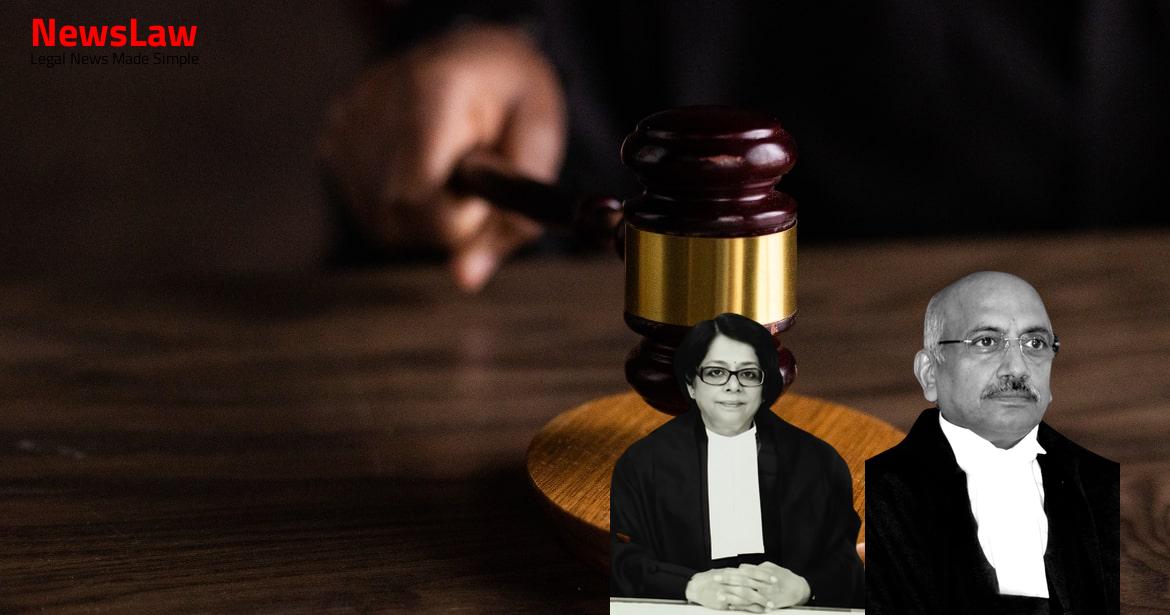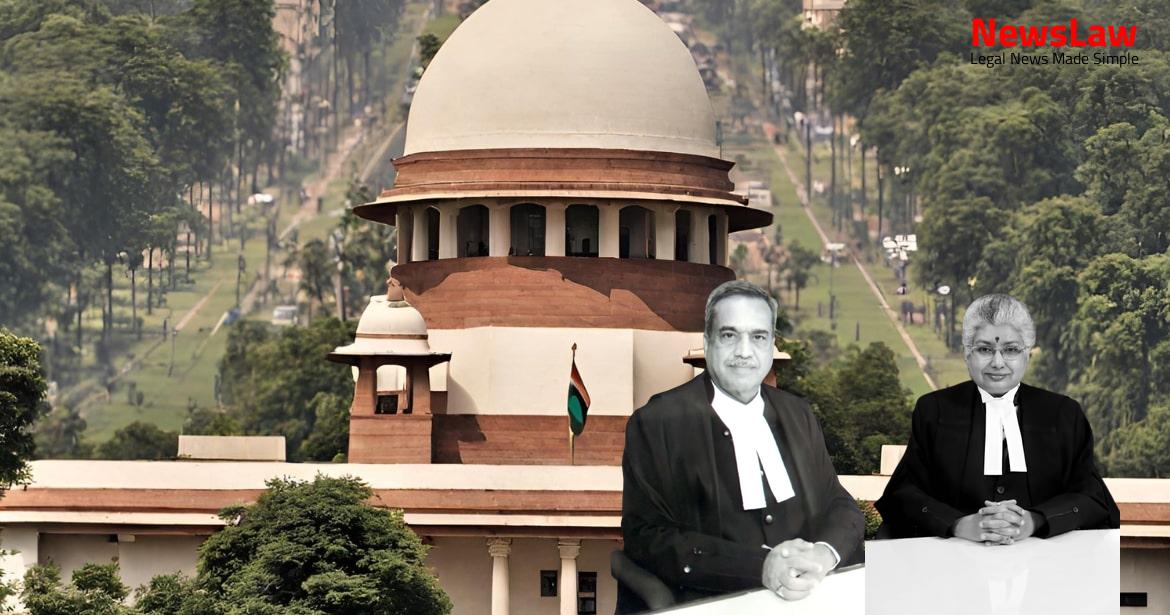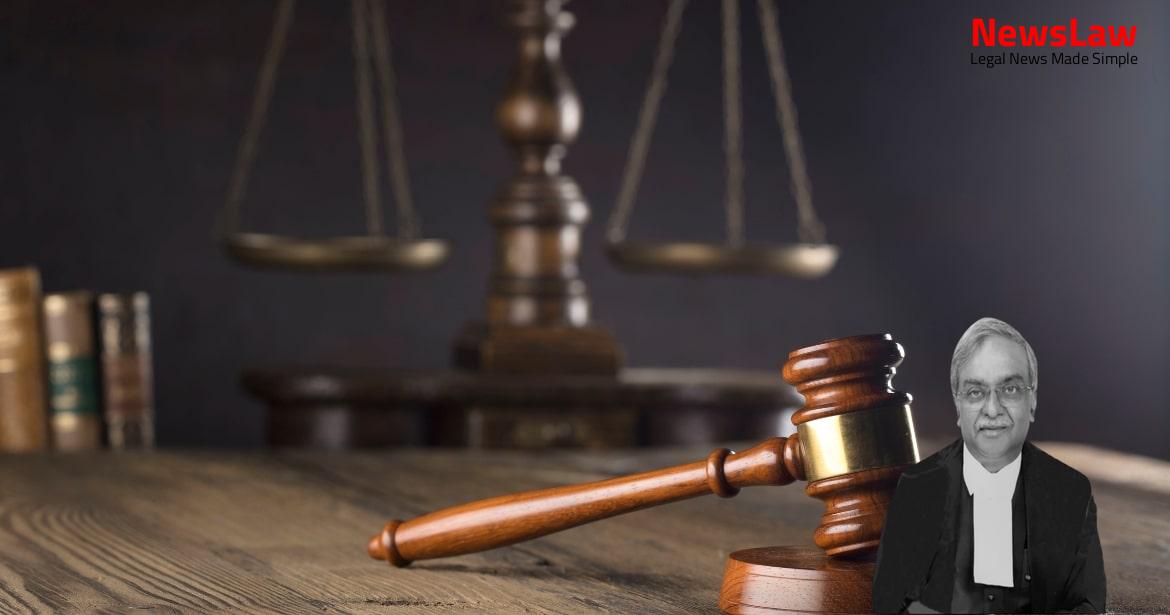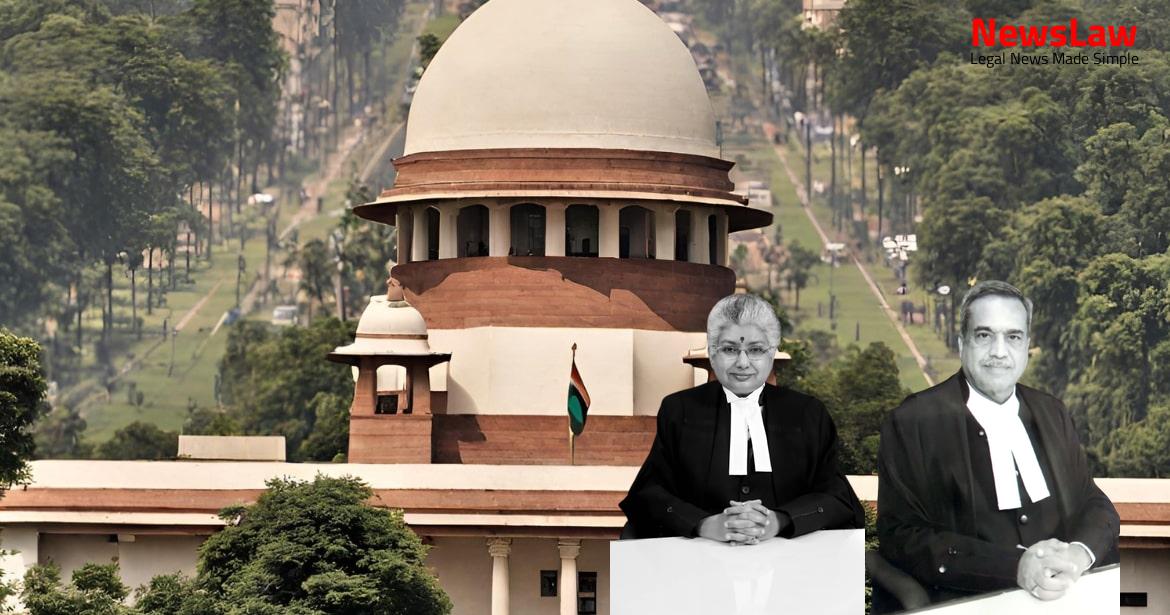Explore the intricate legal analysis by the court on the interpretation of seniority rules in judicial services. The court’s detailed examination of the rules, precedents, and procedures sheds light on the complexities of seniority disputes among judicial officers. Stay tuned to understand how the court navigates through the nuances of the case to deliver a just decision.
Facts
- The Division Bench of the High Court concluded that the appellant slept over his rights and did not take timely action on the seniority dispute.
- The Administrative Committee did not have the authority to decide on the seniority dispute between by-transfer appointees and direct recruits.
- The appellant waived his right of notional seniority by not taking appropriate action.
- The division bench held that no reversion was made to accommodate direct recruits, and referred to the Full Bench judgment in P. K. Haneefa v. State of Kerala.
- As per Haneefa’s judgment, candidates appointed in excess of the quota were entitled to seniority from the date they were adjusted against available vacancies within their quota.
- The appellant could have filed a contempt petition or a fresh writ petition to claim a specific date of assuming office.
- The appellant’s delay in submitting representations resulted in the continuation of by-transfer appointees with seniority.
- The High Court found that the cadre strength was not fixed by the government until 2015, when it was resolved by the Administrative Committee at 99.
- The direct recruits were appointed against the quota of 1/3 of permanent posts prior to the amendment of rules in 2008.
- Inter se seniority disputes need to be decided by the Full Court and cannot be trivialized.
- The appellant should have been given notional seniority from the date of appointment of others, although without a claim for pay and allowances during the period of non-duty.
- The delay in promotions was cited by the Division Bench to reject the appellant’s claim for seniority.
- The Division Bench directed to re-cast seniority among shortlisted candidates, including the appellant, after setting aside the Single Bench’s order.
- An Office Memorandum was issued to assign seniority to various candidates, including the appellant.
- Shri Mohd. Vaseem and Smt. Sophy Thomas were promoted and appointed by transfer to the cadre of District Judge on 2 July, 2010.
- The Government Order specified that the appointments made on May 16, 2008, were without prejudice to the ongoing claim of direct recruits stated in the notification of April 16, 2007.
- The Administrative Committee noted that the appointment by transfer of six promotee officers on May 29, 2007, was due to exigency of service pending direct recruitment.
- A writ petition was allowed by the Division Bench of the High Court on September 13, 2010.
- The High Court issued notice to officers appointed by transfer on July 2, 2016, to consider representations filed by four direct recruits claiming seniority over District Judges appointed by transfer from Sub-Judges/Chief Judicial Magistrates.
- The Administrative Committee found a shortage in the total cadre strength of District Judges, with only 18 officers holding the posts out of the required 24 for direct recruitment.
- A writ petition filed by the appellant was disposed of by the Supreme Court on May 14, 2010, allowing the appellant to move the High Court, as the case involved an important question of public importance.
Also Read: Legal Analysis on Arbitration Petition Limitation Period
Arguments
- The appellant is contending for notional seniority from the date when other candidates were appointed from the same select list.
- The appellant argues that the High Court erred in granting seniority to Officers appointed by transfer over the appellant.
- The appellant was initially assigned seniority at Sl. No 18 but was later placed below Officers appointed by transfer and even below Badharudeen.
- The respondents received selection grade before the appellant and claim seniority based on earlier appointment dates.
- The appellant’s appointment date and seniority have been a subject of dispute due to the High Court’s actions regarding moderation of marks.
- The Division Bench’s order in an earlier writ petition by the appellant directed a recasting of the select list, which the appellant claims has finality.
- The jurisdiction of the Administrative Committee versus the Full Court in deciding seniority disputes is a point of contention.
- The Full Bench’s judgment in Haneefa’s case is referred to for interpreting Rules related to seniority and quota issues.
- Arguments are made regarding the appellant’s right to seniority based on when he should have been appointed and the legality of his exclusion from the initial appointment.
- Counsel for respondent Nos. 11 and 12 argue that they were within their promotion quota and hence rightly assigned seniority.
- Delegations to the Administrative Committee for deciding service problems of judicial officers are highlighted.
- Resolution dates and administrative work distributions within the High Court are mentioned in relation to seniority disputes.
- Judgments from other cases are cited to support the appellant’s claim for notional seniority and the consequences of being wrongfully excluded from initial appointment.
- Learned counsel for respondent No. 5 referenced a previous court order in K. Megachandra Singh & Ors. v. Ningam Siro & Ors.
- The counsel argued that the appellant is not entitled to claim seniority from the date of vacancy availability.
Also Read: Analysis of High Courts’ Jurisdiction and Court Orders Under Article 142
Analysis
- The appellant’s claim for seniority and appointment date was delayed due to illegal grant of moderation of marks
- The cadre strength in 2007 was 96, with 24 posts for direct recruitment and the rest for in-service candidates
- The Full Bench decision in Haneefa’s case established the quota for direct recruits and in-service candidates as 1/3 and 2/3 respectively
- The appellant submitted a representation within 1 year and 2 months of joining, asserting his right for seniority
- Government’s Order in December 2010 cancelled appointments of some District and Sessions Judges who were granted moderation benefits
- The Division Bench directed a revision of the select list, placing the appellant at Sl. No. 3
- The High Court’s delay in deciding the seniority claim does not diminish the appellant’s right to claim seniority from the date of other candidates’ appointments
- The Division Bench erred in finding no quota for in-service candidates and in claiming the appellant delayed the challenge of his appointment
- Specific statutory rules indicate quotas for direct recruits, transfers, and competitive examinations for judicial services
- Certain candidates were granted selection grades earlier, but that does not confer better legal rights
- Seniority is to be determined by the serial order in the appointment order as per Rule 6(2)
- High Court’s time taken for decision does not defeat appellant’s right to claim seniority
- The High Court is responsible for the final decision on representations of the appellant and other candidates
- Sanjay Dhar case: The three-Judge Bench held a specific position.
- Lakshmana Rao Yadavalli case: This Court held a particular stance in this case.
- High Court found the appointment of candidates beyond their transfer quota
- Appellant’s claim for notional seniority was deemed unjust by the Division Bench
- Appellants have no legal or equitable right to claim
Also Read: Electoral Malpractices in Mayor Election
Decision
- Respondent Nos. 11-12 were appointed by transfer subject to the condition of rights of candidates in pending writ petitions at that time.
- Appeals allowed, Division Bench order set aside, and writ petitions ordered to be dismissed with no costs.
- Leave granted for the said writ petitions, which were decided in light of the earlier writ petition filed by the appellant on 13.09.2010.
Case Title: C. JAYACHANDRAN Vs. STATE OF KERALA (2020 INSC 265)
Case Number: C.A. No.-001993-001995 / 2020



